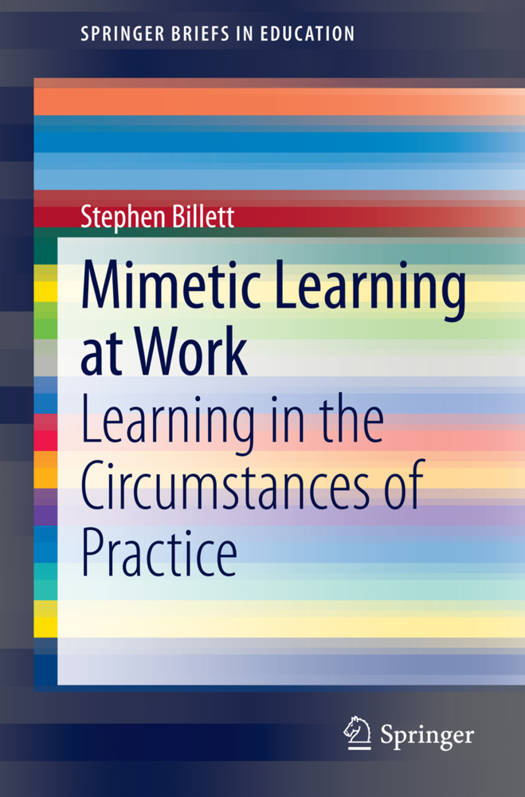
- Afhalen na 1 uur in een winkel met voorraad
- Gratis thuislevering in België vanaf € 30
- Ruim aanbod met 7 miljoen producten
- Afhalen na 1 uur in een winkel met voorraad
- Gratis thuislevering in België vanaf € 30
- Ruim aanbod met 7 miljoen producten
Zoeken
€ 52,95
+ 105 punten
Omschrijving
The concept of mimetic learning at work is outlined and elaborated in this text. That elaboration consists of an account of how securing occupational capacities has been primary associated with learning processes and an explanation of those processes. Much, and probably most, of the learning and development across individuals working lives occurs outside of circumstances of direct guidance or instruction. Yet, recent considerations of individuals' epistemologies and developments form anthropology and cognitive science suggest that current explanations about individuals' contributions to learning at and through work are incomplete. So, there is need for an emphasis on individuals' processes of learning, both within and outside of situations of guidance by more experienced workers, needs to be more fully understood, and accepted as being person dependent. Contributions from anthropology, developmental studies, and cognitive neuroscience now augment those from sociocultural theory.
Specificaties
Betrokkenen
- Auteur(s):
- Uitgeverij:
Inhoud
- Aantal bladzijden:
- 107
- Taal:
- Engels
- Reeks:
Eigenschappen
- Productcode (EAN):
- 9783319092768
- Verschijningsdatum:
- 14/08/2014
- Uitvoering:
- Paperback
- Formaat:
- Trade paperback (VS)
- Afmetingen:
- 156 mm x 234 mm
- Gewicht:
- 185 g

Alleen bij Standaard Boekhandel
+ 105 punten op je klantenkaart van Standaard Boekhandel
Beoordelingen
We publiceren alleen reviews die voldoen aan de voorwaarden voor reviews. Bekijk onze voorwaarden voor reviews.











